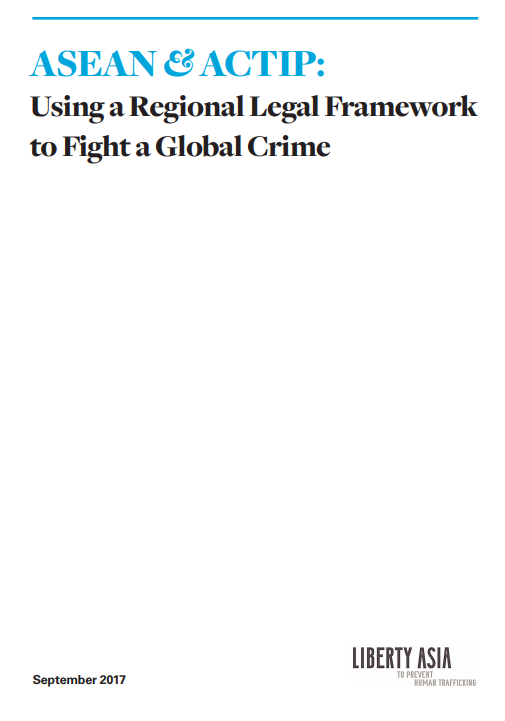BACKGROUND TO ACTIP
The ASEAN Convention Against Trafficking in Persons, Especially Women and Children (ACTIP) has been developed in recognition of the growing issue of human trafficking within and involving the ASEAN Member States. Article 1, which sets out ACTIP’s core objectives, recognises the need for more coordinated enforcement and cooperative action across the region in order to better prevent trafficking and protect and assist victims.
Prior to ACTIP, the adoption of the ASEAN Charter, the ASEAN Human Rights Declaration and the ASEAN Declaration against Trafficking in Persons, Particularly Women and Children (the “ASEAN Trafficking Declaration”) established the groundwork for a regional approach in combatting human trafficking in Southeast Asia. However, the ASEAN Trafficking Declaration has no legal effect and is unable to legally bind member countries. This led to the adoption by the ASEAN members of the legally binding ACTIP on 22 November 2015.
It is noted that all ASEAN members (other than Brunei) have ratified the United Nations’ Protocol to Prevent, Suppress and Punish Trafficking in Persons, especially Women and Children (the “UN Protocol”), which entered into force on 25 December 2003.
As at date of this report (September 2017), Singapore, Cambodia, Thailand, Vietnam, Myanmar and the Philippines have ratified ACTIP (ratification being the formal confirmation of the member state’s acceptance of the terms of ACTIP). As a result, pursuant to Article 29 of the ACTIP, the Convention is deemed to take effect (in the countries which have ratified ACTIP) on 8 March 2017, 30 days after six ASEAN members have ratified it. As with other international conventions, it is the responsibility of the members to comply with ACTIP, either by enacting specific laws in their own jurisdiction or by adopting the legislation wholesale. To the best of our knowledge, there have been no amendments to domestic laws to ensure the implementation of ACTIP at a local level.
The signing of ACTIP, and its future implementation into domestic law, is regarded as an important step in developing a stronger legislative framework for combatting human trafficking in the ASEAN Member States. The ACTIP will be implemented along with the ASEAN Plan of Action Against Trafficking in Persons, Especially Women and Children (APA). However, there are several questions surrounding its enforceability, monitoring of its compliance by states and by ASEAN, and the resolution of conflicts between national laws and the provisions of ACTIP.
SCOPE OF REPORT
This report:
a. in Section 1 (Summary of Principal ACTIP Provisions), summarises the most important ACTIP provisions for countering trafficking, being: (A) victim protection; (B) law enforcement; (C) monitoring compliance; (D) prevention of trafficking and (E) corporate liability (the “Principal ACTIP Provisions”);
b. in Section 2 (Comparison with Domestic Laws), compares ACTIP against each ASEAN member’s domestic anti-trafficking legislation in respect of (A), (B) and (C) of the Principal ACTIP Provisions; and
c. in Section 3 (Comparison with the European Convention) and the Appendix (Detailed comparison between European Convention and ACTIP), compares ACTIP against the European Convention in respect of the Principal ACTIP Provisions.

